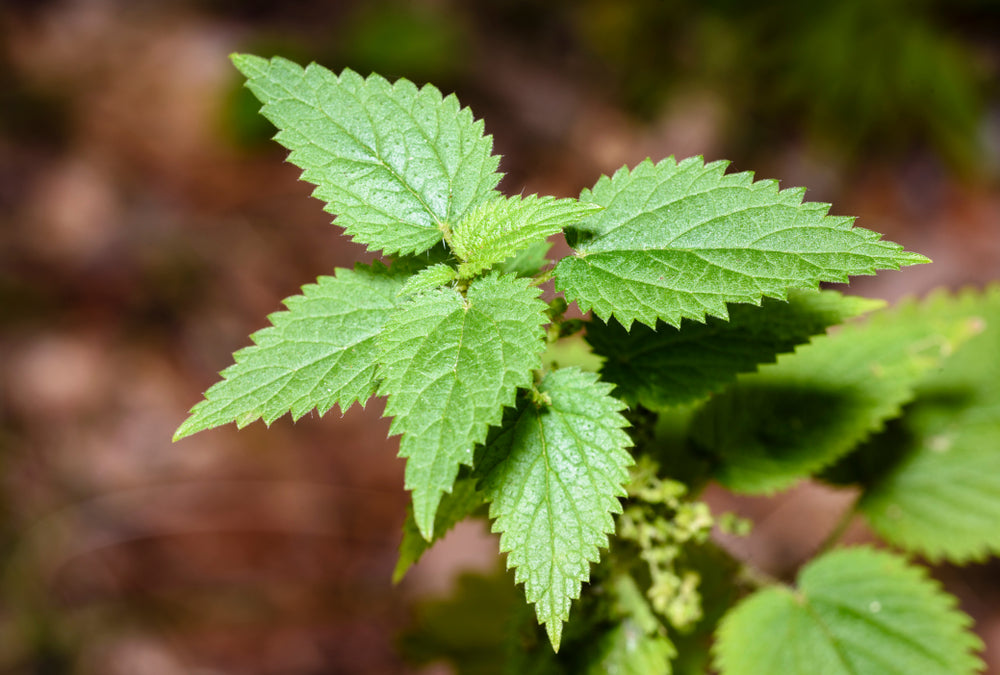
Yes, there’s credible evidence that nettle leaves (Urtica dioica) may help reduce gut inflammation.
A 12-week, double-blind, placebo-controlled trial in people with IBD reported significant reductions in serum TNF-α and faecal calprotectin with hydroalcoholic nettle leaf extract.
Animal studies also show nettle attenuates colitis severity and improves colon histology. Together, that positions nettle as a meaningful anti-inflammatory ingredient that can help support your gut.
What Counts As “Gut Inflammation”?
Faecal calprotectin (FC): a sensitive, non-invasive marker that rises when the intestinal lining is inflamed. It helps distinguish IBD from IBS and monitor intestinal inflammation over time.
TNF-α: a key pro-inflammatory cytokine that drives mucosal injury in IBD. Lower TNF-α is generally associated with calmer disease activity.
Human Evidence for Nettle Leaves
Randomised, double-blind, placebo-controlled clinical trial
Design: 64 participants with mild–moderate IBD were randomised to hydroalcoholic nettle leaf extract tablets or placebo three times daily for 12 weeks.
Outcomes: The nettle group showed significant reductions in serum TNF-α and faecal calprotectin vs placebo; ESR changes were not significant. The intervention was generally well-tolerated.
Why this matters: FC is a validated surrogate of intestinal inflammation, and TNF-α is a primary upstream inflammatory driver. Improvements in both strengthen biological plausibility for nettle’s gut-calming effect.
Preclinical Evidence for Nettle Leaves
Chronic colitis models
One study found that IDS-30 stinging nettle leaf extract reduced clinical and histological signs of colitis in chronic DSS and IL-10−/− models.
Inflammatory mediators fell: faecal IL-1β and mucosal TNF-α decreased; splenic/Peyer’s patch mononuclear cell proliferation was suppressed.
DSS-induced ulcerative colitis
In another study on rats, Aqueous nettle leaf extract (AEUD) given orally for 21 days (pre-treatment and during DSS) ameliorated disease activity, reduced ulcer scores, preserved colon length, and improved histology.
Biochemistry: CRP decreased by ~80% (low dose) vs DSS; oxidative stress markers (MDA, H₂O₂) fell; antioxidant enzymes (SOD, CAT, GPx) rose.
How Might Nettle Reduce Gut Inflammation?
Cytokine and pathway modulation: Nettle and its polyphenols (e.g., quercetin, isorhamnetin) can down-regulate NF-κB signalling and reduce TNF-α, IL-1β and IL-6 production.
Antioxidant protection: Nettle’s phenolics and flavonoids limit oxidative stress that fuels mucosal inflammation, aligning with improvements in MDA/H₂O₂ and endogenous antioxidant enzymes seen in vivo.
Immune balance: Suppression of excessive Th1 responses observed in murine colitis models suggests a broader immunomodulatory effect relevant to IBD flares.
Are Nettle Leaves in Cosmic Hue?
Yes nettle leaves are in Cosmic Hue.
During my recovery from a gut perforation and years of testing 30+ plants, nettle consistently stood out for anti-inflammatory effects and gut friendliness.
This now has the scientific evidence behind it that we've discussed in this article.
Nettle leaves sit alongside marshmallow root, ashwagandha root, cat’s claw, astragalus root, echinacea root and fennel seeds in Cosmic Hue to provide daily, gentle gut support.
Conclusion
Lower FC and TNF-α in the clinical trial supports nettle as a credible anti-inflammatory plant.
Expect gradual benefits with consistent use alongside foundations like sleep, movement, reduction in stress.
Author: Manny is the founder of Fifth Ray and a certified Gut Health Coach. After battling Crohn's Disease for 16 years, he transformed his gut health through plant-based healing. His story has been featured on BBC, ITV, and Daily Mail.
Please note this information is for educational purposes only, not medical advice. Cosmic Hue is not intended to diagnose, treat, cure, or prevent any disease. Always consult your healthcare provider before making changes to your health routine.

